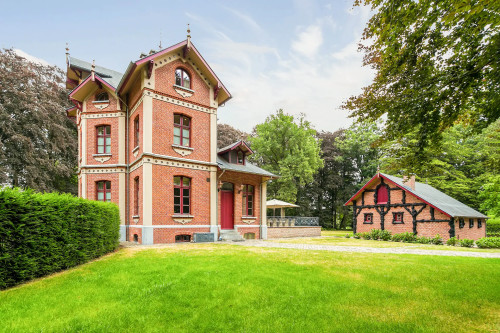
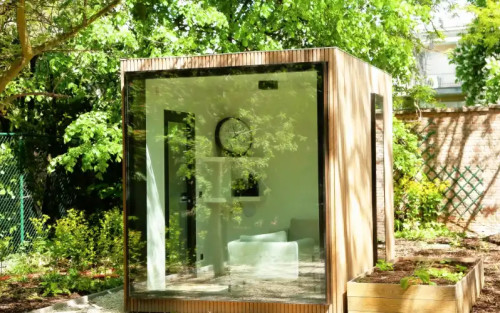


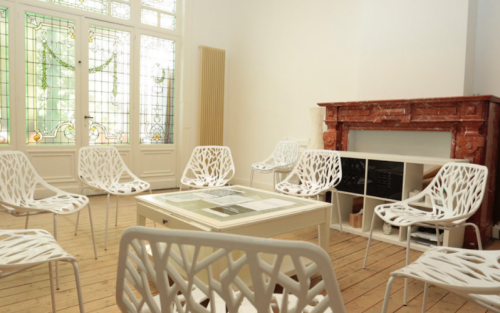




Affect2U
Verified Center
This provider's information has been quality-checked by Recovery.com's Research Team for accuracy and completeness, including center verification through appropriate third-party organizations.
Treatment Focus
This center treats substance use disorders and mental health conditions. You'll receive individualized care catered to your unique situation and diagnosis, learn practical skills for recovery, and make new connections in a restorative environment.
Primary Level of Care
Offering intensive care with 24/7 monitoring, residential treatment is typically 30 days and can cover multiple levels of care. Length can range from 14 to 90 days typically.
Treatment Focus
This center treats substance use disorders and mental health conditions. You'll receive individualized care catered to your unique situation and diagnosis, learn practical skills for recovery, and make new connections in a restorative environment.
Primary Level of Care
Offering intensive care with 24/7 monitoring, residential treatment is typically 30 days and can cover multiple levels of care. Length can range from 14 to 90 days typically.
Private Pay
You pay directly for treatment out of pocket. This approach can offer enhanced privacy and flexibility, without involving insurance. Exact costs vary based on program and length of stay. Contact the center for specific details.
Affect2U
Affect2U
About Affect2U
From their cosy location in Vosselaar, Affect2U offers a residential programme for addiction and mental health that helps clients take back control of their power and go from survival to truly living. With a fast intake process and intentionally small groups, clients begin receiving the emotional attention and safety they need for sustainable recovery from substance use, process addictions, and underlying trauma. Treatment is available in both English and Dutch.
Build a Foundation for Recovery in 28 Days
Affect2U’s 28-day programme helps clients stabilise and begin recovery, often starting with detox to support physical withdrawal. Clients explore root causes and build skills in communication, relapse prevention, and emotional regulation. Care draws on cognitive behavioural therapy (CBT), dialectical behaviour therapy (DBT), and trauma-focused approaches, delivered through small groups, weekly one-to-one sessions, and family involvement, equipping clients with practical tools, relational safety, and momentum that carries into everyday life.
Heal on a Charming Domain
While easily accessible from larger cities, Affect2U’s centre in Vosselaar is remote and discreet. The elegant, 3-storey home accommodates 13 clients with shared bedrooms and nutritious, chef-prepared meals. Clients can relax with streaming TV services, guided yoga sessions, walks in the nearby forest or by the lake, or time with the on-site therapy dog, donkey, or Shetland pony. Clients decide together on weekend outings, whether bowling or visiting a cultural festival.
Smoothly Transition from Treatment to Daily Life
Affect2U customises a discharge plan with each client to guide their transition from residential treatment to living independently. For clients living abroad, the aftercare package can include remote individual, family, and/or group sessions at an hourly rate. For clients living in Antwerp or South Africa, Affect2U also offers in-person outpatient services that focus on applying tools gained in residential treatment.

Highlights from the Center
Highlights
These highlights are provided by and paid for by the center.
Therapeutic Location
Holistic Approach
Trauma-Informed Care
Accredited
Budget Friendly
Center Overview
Treatment Focus
This center treats substance use disorders and mental health conditions. You'll receive individualized care catered to your unique situation and diagnosis, learn practical skills for recovery, and make new connections in a restorative environment.

Affect2U
Pricing and Program Length
Estimated Center Costs
The cost listed here (€3,975 - €4,625 / 2 weeks), is an estimate of program cost. Center price can vary based on program and length of stay. Contact the center for more information. Recovery.com strives for price transparency so you can make an informed decision.




Recovery.com Verified Listing
Recovery.com verified that the name, location, contact information and license to operate for this treatment provider are valid and up-to-date.

Licensed
Recovery.com is an independent, third-party mental health resource. Verification does not imply endorsement and does not guarantee the quality of treatment services.
Meet Your Care Team

Vainui Nicole
Clinical psychologist & I.F.S. therapist (Internal Family Systems)

Michael Wilheim
Addiction counselor

Laura Van Gass
Psychologist & I.F.S. therapist (Internal Family Systems)

John Stewart
Trauma-informed addiction counselor & I.F.S. informed (Internal Family Systems)

Yanitsa Ramos Valenzuela
Clinical psychologist & I.F.S. therapist (Internal Family Systems)

Naoual Barry
Psychologist & I.F.S. informed (Internal Family Systems)
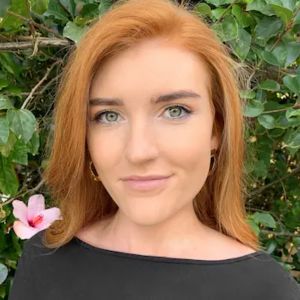
Kayla Gous
Psychologist

Jessica Wasserman
Psychologist & I.F.S. therapist (Internal Family Systems)
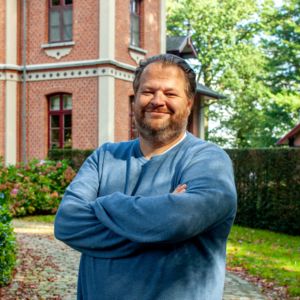
Jan Olaerts
Casemanager, expert by experience & Recovery Assistant
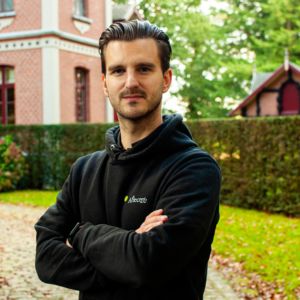
Arne Nilis
Recovery Assistant & expert by experience

Ian Roelants
Recovery Assistant & expert by experience

Broos Mys
Recovery Assistant & expert by experience

Chelsea Terryn
Recovery Assistant & expert by experience

Bastiaan de Haan
Recovery Assistant & expert by experience

Filip van der Avoirt
Recovery Assistant & expert by experience

Tim van Ballegooij
Recovery Assistant & expert by experience

Inge Pierloz
Administration & yoga

Ralph Van de Wijnckel
Doctor specialized in addiction

Michael Goyvaerts
Sports & nutrition coach

Helena Mermans
NLP coach / doctor
Your Care Options
Specializations
Alcohol
Using alcohol as a coping mechanism, or drinking excessively throughout the week, signals an alcohol use disorder.
Detox
Detox fully and safely removes toxic substances from the body, allowing the next steps in treatment to begin with a clean slate.
Burnout
Burnout entails mental and physical exhaustion, and leads to a severe lack of fulfillment. This condition is often caused by overwork.
Drug Addiction
Drug addiction is the excessive and repetitive use of substances, despite harmful consequences to a person's life, health, and relationships.
Gambling
Excessive, repetitive gambling causes financial and interpersonal problems. This addiction can interfere with work, friendships, and familial relationships.
Post Traumatic Stress Disorder
PTSD is a long-term mental health issue caused by a disturbing event or events. Symptoms include anxiety, dissociation, flashbacks, and intrusive thoughts.
Sex Addiction
Compulsively seeking out sex can easily become a problem. This addiction is detrimental to relationships, physical health, and self-esteem.
Trauma
Some traumatic events are so disturbing that they cause long-term mental health problems. Those ongoing issues can also be referred to as "trauma."
Who We Treat
Young Adults
Emerging adults ages 18-25 receive treatment catered to the unique challenges of early adulthood, like college, risky behaviors, and vocational struggles.
LGBTQ+
Addiction and mental illnesses in the LGBTQ+ community must be treated with an affirming, safe, and relevant approach, which many centers provide.
Men and Women
Men and women attend treatment for addiction in a co-ed setting, going to therapy groups together to share experiences, struggles, and successes.
Midlife Adults
For adults ages 40+, treatment shifts to focus on the unique challenges, blocks, and risk factors of their age group, and unites peers in a similar community.
Mild Disabilities
Adults with mild physical or intellectual disabilities receive treatment catered to their specific needs in a safe and clinically supportive environment.
Pregnant Women
Addiction and mental health treatment meets the clinical and psychological needs of pregnant women, ensuring they receive optimal care in all areas.
Professionals
Busy, high-ranking professionals get the personalized treatment they need with greater accommodations for work, privacy, and outside communication.
Treatment Services
Detox
Detox fully and safely removes toxic substances from the body, allowing the next steps in treatment to begin with a clean slate.
Detox (on-site with residential)
This is often the first step of addiction treatment. For many people, it's dangerous to detox without proper medical support.
Outpatient
During outpatient rehab, patients attend a structured treatment program while continuing to live at home.
Residential
In a residential rehab program, patients live onsite, with access to daily treatment and 24-hour care. An average stay is 30-90 days.
Approaches
Evidence-Based
A combination of scientifically rooted therapies and treatments make up evidence-based care, defined by their measured and proven results.
Family Involvement
Providers involve family in the treatment of their loved one through family therapy, visits, or both–because addiction is a family disease.
Holistic
A non-medicinal, wellness-focused approach that aims to align the mind, body, and spirit for deep and lasting healing.
Individual Treatment
Individual care meets the needs of each patient, using personalized treatment to provide them the most relevant care and greatest chance of success.
Therapies
1-on-1 Counseling
Patient and therapist meet 1-on-1 to work through difficult emotions and behavioral challenges in a personal, private setting.
Meditation & Mindfulness
A practiced state of mind that brings patients to the present. It allows them to become fully aware of themselves, their feelings, and the present moment.
Play Therapy
This approach is commonly used with children. It incorporates elements of play and self-expression, like boardgames, finger painting, dolls, and blocks.
Online Therapy
Patients can connect with a therapist via videochat, messaging, email, or phone. Remote therapy makes treatment more accessible.
Mindfulness Therapy
This ancient practice can be mental, emotional, and even spiritual. In meditation, you focus your attention on the present moment without judgement.
Art Therapy
Visual art invites patients to examine the emotions within their work, focusing on the process of creativity and its gentle therapeutic power.
Couples Counseling
Partners work to improve their communication patterns, using advice from their therapist to better their relationship and make healthy changes.
Conditions We Treat
Pornography Addiction
A person with a porn addiction is emotionally dependent on pornography to the point that it interferes with their daily life and relationships.
Grief and Loss
Grief is a natural reaction to loss, but severe grief can interfere with your ability to function. You can get treatment for this condition.
ADHD, ADD
ADHD is a common mental health condition caused by dopamine imbalance. Common symptoms include inattention, hyperactivitiy, and impulsivity.
Anger
Although anger itself isn't a disorder, it can get out of hand. If this feeling interferes with your relationships and daily functioning, treatment can help.
Anxiety
Anxiety is a common mental health condition that can include excessive worry, panic attacks, physical tension, and increased blood pressure.
Bipolar
This mental health condition is characterized by extreme mood swings between depression, mania, and remission.
Burnout
Burnout entails mental and physical exhaustion, and leads to a severe lack of fulfillment. This condition is often caused by overwork.
Chronic Pain Management
Long-term physical pain can have an affect on mental health. Without support, it can also impact your daily life and even lead to addiction.
Substances We Treat
Alcohol
Using alcohol as a coping mechanism, or drinking excessively throughout the week, signals an alcohol use disorder.
Benzodiazepines
Benzodiazepines are prescribed to treat anxiety and sleep issues. They are highly habit forming, and their abuse can cause mood changes and poor judgement.
Chronic Relapse
Consistent relapse occurs repeatedly, after partial recovery from addiction. This condition requires long-term treatment.
Co-Occurring Disorders
A person with multiple mental health diagnoses, such as addiction and depression, has co-occurring disorders also called dual diagnosis.
Cocaine
Cocaine is a stimulant with euphoric effects. Agitation, muscle ticks, psychosis, and heart issues are common symptoms of cocaine abuse.
Drug Addiction
Drug addiction is the excessive and repetitive use of substances, despite harmful consequences to a person's life, health, and relationships.
Ecstasy
Ecstasy is a stimulant that causes intense euphoria and heightened awareness. Abuse of this drug can trigger depression, insomnia, and memory problems.
Heroin
Heroin is a highly addictive and illegal opioid. It can cause insomnia, collapsed veins, heart issues, and additional mental health issues.
Psychedelics
Hallucinogenic drugs—like LSD—cause euphoria and increased sensory experiences. When abused, they can lead to depression and psychosis.
Languages
Aftercare
Care Designed for Your Needs
Personal Amenities
Amenities
Special Considerations
Center Pets
Addiction and mental health facilities with pets allow patients to interact with friendly dogs, cats, horses, and in some cases, even dolphins.
Gender-specific groups
Patients in gender-specific groups gain the opportunity to discuss challenges unique to their gender in a comfortable, safe setting conducive to healing.
Healthy Meals are provided
Great food meets great treatment, with providers serving healthy meals to restore nutrition, wellbeing, and health.
Activities
Yoga
Yoga is both a physical and spiritual practice. It includes a flow of movement, breathing techniques, and meditation.
Off-Site Activities
Learn More About the Center
Alumni Testimonials
Read what others have to say about their experience at Affect2U.
Videos And Media From Affect2U
Learn more about Affect2U, what they offer, and how they approach recovery.
Family Meetings With Affect2U
Find out more about Affect2U’s bi-weekly family meetings, led by clinical professionals at Affect2U.
Affect2U’s Mission And Values
Learn about Affect2U’s mission, and what they value in treatment.
What people are saying
Treatment
5.0
Accommodations
5.0
Food & Nutrition
4.5
Value
4.5
Victor Daeseleire
Treatment in 2022 • (45 days) • Reviewed 03/16/23
Former Client
•self-employed (B2B marketing)
•Antwerp, Belgium





